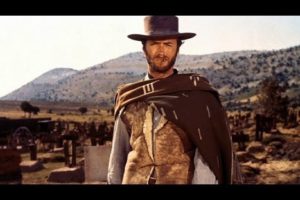When I was in high school, our music classes were in danger of being cancelled. I’ll never forget the night I played fly-on-the-wall at a school board meeting while the powerful adults discussed the future of our program. Silent the entire time, I went home that night and cried – I had failed to speak up for the program I loved. What if my failure to speak up meant the end of the music program!
When I was in college, I experienced a falling out with a close friend. Our communication stopped, and the silence was filled with all sort of terrifying guesses as to what the other was thinking. Unsure of what to say, neither of us said anything.
The reality of inarticulacy
I’m no stranger to the weakness called “inarticulacy,” and neither are others throughout history. Listen to our historical brother, T.S. Eliot, wrestle through the same weakness:
“So here I am, in the middle way, having had twenty years––
Twenty years largely wasted, the years of l’entre deux guerres––
Trying to learn how to use words, and every attempt
Is a wholly new start, and a different kind of failure
Because one has only learnt to get the better of words
For the thing one no longer has to say, or the way in which
One is no longer disposed to say it. And so each venture
Is a new beginning, a raid on the inarticulate
With shabby equipment always deteriorating
In the general mess of imprecision of feeling,
Undisciplined squads of emotion. And what there is to conquer
By strength and submission, has already been discovered
Once or twice, or several times, by men whom one cannot hope
To emulate––but there is not competition––
There is only the fight to recover what has been lost
And found and lost again and again: and now, under conditions
That seem unpropitious. But perhaps neither gain nor loss.
For us, there is only the trying. The rest is not our business.”
Deep convictions and desires, deep knowledge and awareness, isn’t always easy to articulate. “Why do you love me?” is a terrifying question to have to answer! “I… well… I just do. You know?” You’ve spent nights in bed punching your pillow, repeating that perfect one-liner that came an hour too late. You’ve failed to defend the truth or the person whom you love, and you’re afraid to try again. Sometimes you just don’t know what to say.
Articulacy, furthermore, is not merely the struggle of choosing the right words. Perhaps even more insidious is the struggle of making the right decision. Hear Martin Buber unpack the necessity of cutting through indecision:
The fiery stuff of all my ability to will seethes tremendously, all that I might do circles around me, still without actuality in the world… the universe is my temptation. … He alone who directs the whole strength of [one] alternative into doing… who lets the abundant passion of what is rejected invade the growth to reality of what is chosen – he alone… makes decision, decides the event… If there were a devil it would not be the one who decided [wrongly], but one who, in eternity, came to no decision.
Many of my friends are in the same boat here. They could teach, travel the world, go on dates, record an album, or move to Connecticut. “You have to move,” Roger Williams, the late executive director of Mount Hermon Christian Camps once told me. “God does not steer the docked boat, but the one which has pushed off in faith.” Deliberation, Aristotle insisted, is only useful if it can solve the issue. Sometimes, the virtuous decision is the blind one.
History is speech and decision
In no trite way, history itself can be defined as the sequence and con-sequence of articulacy. History, for better and for worse, belongs to the articulate. It’s true politically. Take Abraham Lincoln’s Second Inaugural Address or the Louisiana Purchase. And it’s true theologically. God spoke the law at Sinai and Jesus of Nazareth submitted to public execution on a Roman cross.
Having graduated from a great books program, I’m familiar with a number of the questions that have haunted Western civilization for several thousand years, and am no closer to offering precise answers. Why is man simultaneously so great and so weak? How does humanity come to a knowledge of God? Can beauty exist apart from moral goodness? Given our human fallenness, to what extent and in what manner can we administrate and accommodate human freedom?
I’m grateful, now, to be studying the particular stream of history called church history. Church history is nothing other than the record of courageous men and women saying, “The resurrection and ascension of Jesus of Nazareth demonstrates that his message is true: He is King of Creation. What, precisely, that means, we’ve been working through for 2,000 years.” Or, as Lesslie Newbigin put it,
The Bible functions as authority… within a community that is committed to faith and obedience and is embodying that commitment in an active discipleship that embraces the whole of life, public and private.
Frankly, human love is more about persistence than precision. Precision comes gradually, and over time as a fruit of persistence. Love requires courage before it grants knowledge.
I’m becoming more and more convinced that life’s big questions aren’t as appropriately addressed by precise answers as by courageous love.
The legitimate fear of irreciprocity
But why is articulacy fearful? Of course, it may be wrong or it may be unwelcome. Or to combine the two, it may not work Billy Joel said it better than anyone I know:
In every heart there is a room
A sanctuary safe and strong
To heal the wounds from lovers past
Until a new one comes along
Though afraid, he is unwilling to remain silent:
But if my silence made you leave
Then that would be my worst mistake
So I will share this room with you
And you can have this heart to breakSo I would choose to be with you
That’s if the choice were mine to make
But you can make decisions too
And you can have this heart to break
What is the history of the relationship between God and Israel if not centuries of attempts at reconciliation that didn’t seem to work? Perhaps courageous articulacy, doing what God does, draws us closer to Him.
Take courage, God has already approved what you do
What should you say? What should you do? You know what is good, because “He has told you, O man, what is good.” (Micah 6:8) So, “Go. Eat your bread with joy, and drink your wine with a merry heart, for God has already approved what you do… Whatever your hand finds to do, do it with all your might.” (Ecclesiastes 9:7,10) What he has not told you is whether or not your courage will “work.” But God works together all things for good, for those who “entrust their souls to a faithful Creator, doing good.” (I Peter 4:19)
I want to conclude with this: Give it a shot, or a couple of shots. For goodness’ sake, and for truth and beauty’s sakes as well, speak and act with persistent imprecision. Love is found, history is made, prayers are offered, friendships are resolved, and music programs are saved by the persistent.
I met with my friend, the one with whom I had fallen out. We spoke, somewhat reservedly, not entirely honestly, and so it didn’t quite work. But we’ll try again soon, I’m sure. So should you.
Thankfully, other people spoke up about the music program. It’s bigger than ever before, and thriving.





Leave a Reply
Your email is safe with us.